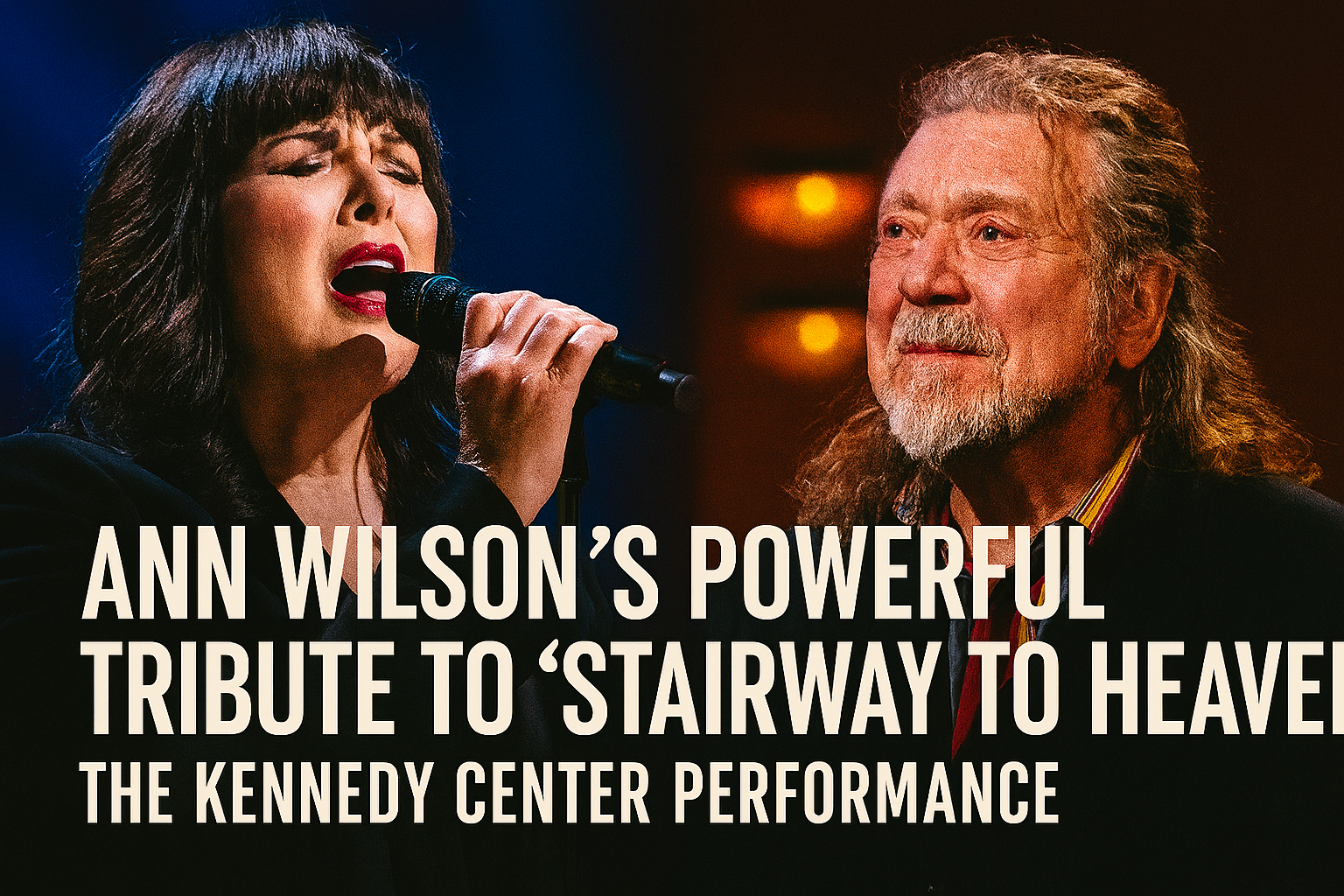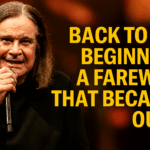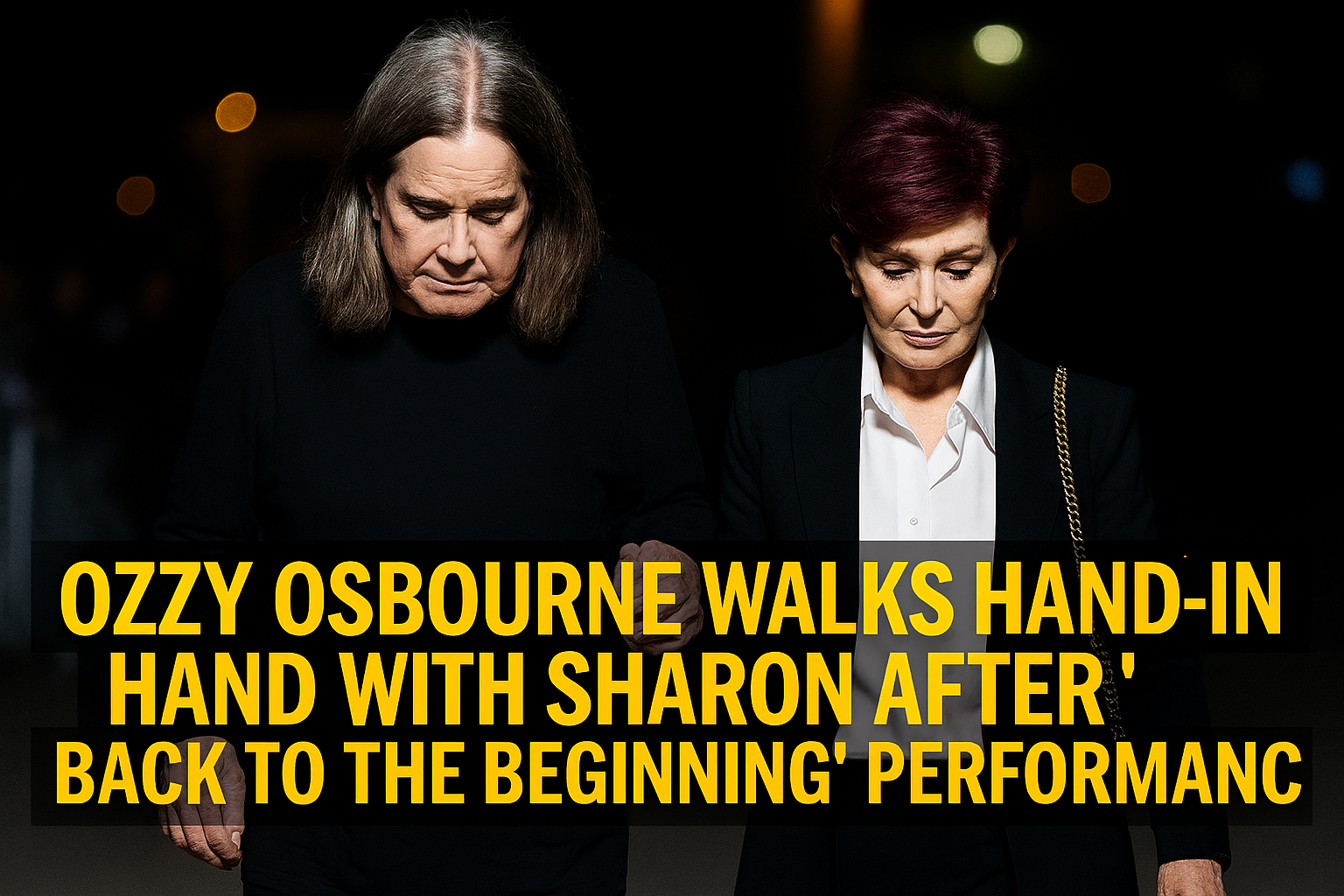In the pantheon of rock history, few moments resonate as deeply as Ann Wilson’s performance of “Stairway to Heaven” at the Kennedy Center Honors. It wasn’t just a cover—it was a spiritual offering. And for Robert Plant, the song’s original voice, it was the only time he truly enjoyed hearing someone else sing it. That revelation, shared by Wilson herself, adds a layer of intimacy to a performance already steeped in reverence and emotional power.
The evening was charged from the start. As Wilson stepped onto the stage, the audience sensed something monumental was about to unfold. The Kennedy Center crowd, filled with dignitaries, artists, and legends, fell into a hush. In the balcony, Robert Plant, Jimmy Page, and John Paul Jones sat side by side, watching with quiet anticipation. The weight of legacy hung in the air.
Then came the opening lines. Wilson’s voice, rich and commanding, floated through the hall with a blend of grace and grit. She didn’t mimic Plant—she honored him. Her delivery was grounded in respect, but it carried her own emotional truth. Each note felt lived-in, each phrase deliberate. The song’s mystical poetry—so often overplayed or misinterpreted—was reborn in her voice, stripped of cliché and filled with soul.
As the arrangement built, so did the emotional intensity. Jason Bonham, son of the late John Bonham, took his place behind the drum kit. His presence was more than symbolic—it was connective tissue between past and present. With every beat, he echoed his father’s legacy while forging his own. The performance became a family affair, a generational bridge, a living tribute.
The choir entered next, swelling behind Wilson with celestial force. Their harmonies lifted the song into the stratosphere, transforming it from a rock ballad into something sacred. The orchestration was lush but never overwhelming, allowing Wilson’s voice to remain the guiding light. The arrangement honored the original while expanding its emotional reach.
In the balcony, Robert Plant was visibly moved. Cameras captured his face as the song reached its climax—eyes glistening, lips trembling, heart wide open. It was a rare sight: the man who once sang “Stairway to Heaven” with youthful fire now receiving it as a gift, humbled and overwhelmed. His reaction said everything. This wasn’t just a performance—it was a reckoning, a moment of grace.
Jimmy Page and John Paul Jones watched with quiet pride. Their expressions reflected a mix of nostalgia and awe. They had written the song decades earlier, but here it was, reborn in front of them, carrying new weight and meaning. The Kennedy Center stage had become a temple, and the music was its prayer.
For Ann Wilson, the moment was a culmination of artistry and admiration. As the lead singer of Heart, she had long been known for her powerhouse vocals and emotional depth. But this performance elevated her legacy. She didn’t just sing “Stairway to Heaven”—she reimagined it, reinterpreted it, and re-delivered it to its creators with love and fire.
The audience responded with a standing ovation that felt more like a collective exhale. They had witnessed something rare: a tribute that transcended genre, ego, and time. It wasn’t about technical perfection—it was about emotional truth. And Wilson had delivered it in full.
Since that night, the performance has been viewed by millions around the world. It circulates online as one of the most moving moments in rock history. Fans revisit it not just for the music, but for the emotion etched into every frame. Plant’s tears. Bonham’s beats. Wilson’s voice. The choir’s lift. It’s all there, preserved like a sacred relic.
What makes the moment endure is its sincerity. Tribute performances often risk feeling staged or sentimental. But this one was different. It was raw, real, and reverent. It honored the song’s legacy while breathing new life into it. It reminded audiences why music matters—how it connects, heals, and elevates.
“Stairway to Heaven” has always been more than a song. It’s a journey, a myth, a meditation. And on that night at the Kennedy Center, it became a gift. Ann Wilson gave it back to its creators with humility and power. Jason Bonham anchored it with blood and rhythm. The choir lifted it to the heavens. And Robert Plant received it with tears.
In the end, that performance stands as a testament to the enduring power of music. It shows that even legends can be moved. That even the most iconic songs can be reborn. And that when the right voice meets the right moment, magic happens.










